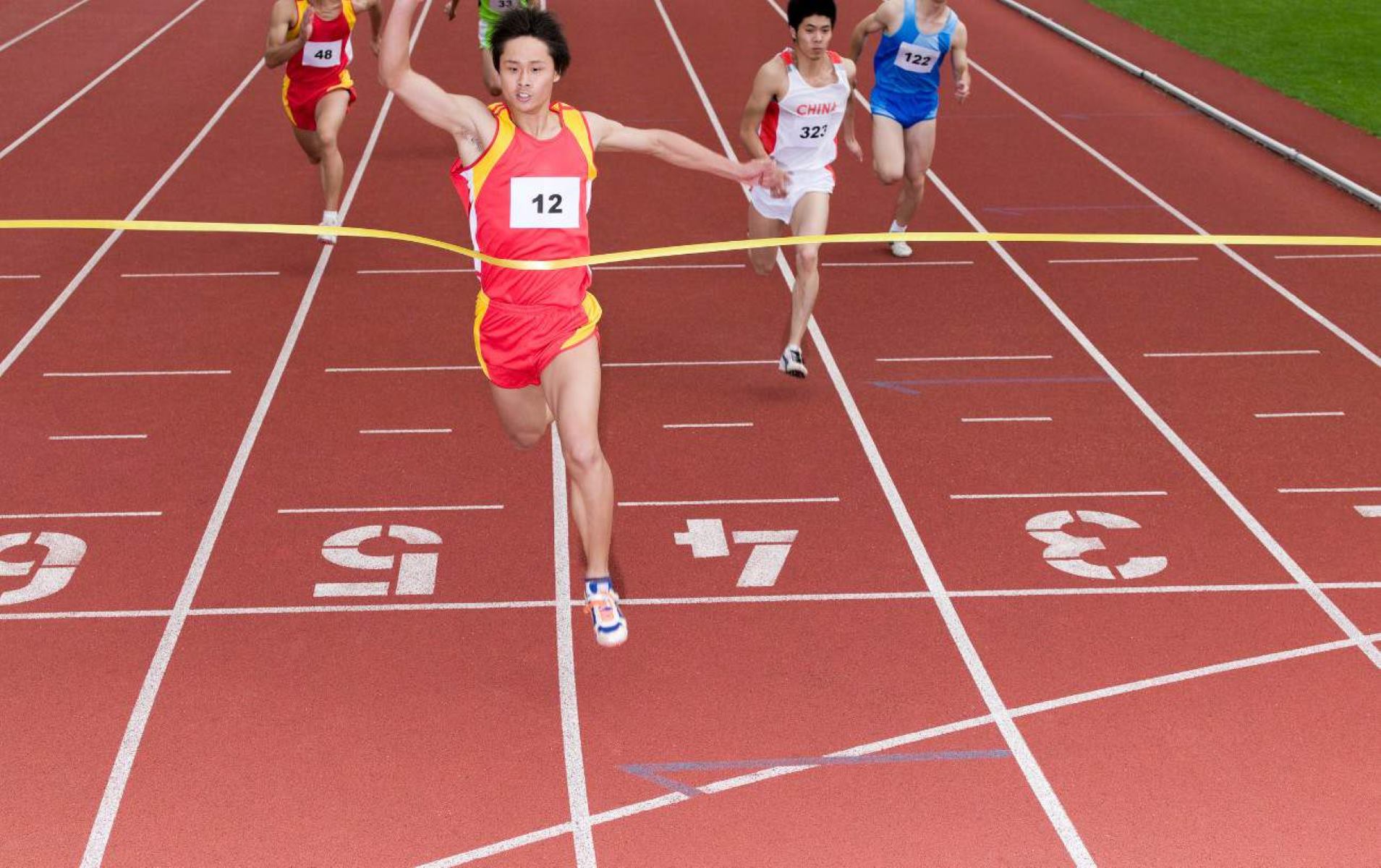Home>Misc>Featured>How Does Low Motivation Affects Athletic Performance


Featured
How Does Low Motivation Affects Athletic Performance
Modified: August 19, 2023
Discover how low motivation impacts athletic performance and learn how to overcome it. Don't miss this featured article for insights and strategies to boost your motivation and excel in your sport.
Introduction
Motivation plays a critical role in athletic performance. It provides the drive and determination necessary to excel in training, competitions, and achieving goals. However, athletes may occasionally experience periods of low motivation, which can significantly impact their performance and overall success. Low motivation can be caused by a variety of factors, such as burnout, lack of progress, or external pressures.
In this article, we will explore the definition, causes, and effects of low motivation on athletic performance. We will also discuss the psychological and physical impacts it has on athletes. Additionally, we will provide strategies to help athletes overcome low motivation and regain their passion for their sport.
Low motivation, also known as demotivation, refers to a state in which athletes lack the desire, energy, or enthusiasm to engage fully in their training or competitive activities. It is important to note that low motivation is different from occasional dips in excitement or mood. It is characterized by a prolonged and persistent lack of drive, which can hinder an athlete’s progress and hinder their ability to reach their full potential.
There are several factors that can contribute to low motivation in athletics. One common cause is burnout, which occurs when an athlete experiences chronic physical and mental exhaustion due to excessive training and competitions without adequate rest and recovery. Another factor is a lack of progress or plateau, where athletes may become demotivated when they feel like they are not improving or reaching their goals despite their efforts.
External pressures can also contribute to low motivation. Athletes may feel the weight of expectations from coaches, parents, or teammates, leading to feelings of anxiety and self-doubt. Additionally, significant life events such as injuries, personal issues, or changes in the sport’s environment can also impact an athlete’s motivation.
The effects of low motivation on athletic performance can be far-reaching. Physically, athletes may experience a decline in strength, stamina, and overall physical performance. Mental fatigue and lack of focus can lead to poor decision-making, decreased concentration, and diminished reaction time. Moreover, low motivation can negatively impact an athlete’s emotional well-being, causing feelings of frustration, disappointment, and a loss of enjoyment in their sport.
Definition of Low Motivation in Athletics
Low motivation in athletics refers to a state in which athletes lack the drive, enthusiasm, and passion to fully engage in their training and competitive activities. It is characterized by a notable decrease in an athlete’s desire to perform at their best and achieve their goals.
When an athlete experiences low motivation, they may find it difficult to maintain consistent effort, focus, and dedication towards their sport. This lack of motivation can manifest in various ways, such as reduced training intensity, decreased commitment, and a general sense of apathy towards their athletic pursuits.
Low motivation is different from occasional dips in motivation or temporary setbacks. It goes beyond the typical day-to-day fluctuations in motivation that athletes may experience. Instead, it is a prolonged and persistent state of demotivation that can significantly impact an athlete’s performance and overall well-being.
The key indicators of low motivation in athletics include:
- Decreased enthusiasm and excitement towards training and competitions.
- Lack of drive and commitment to putting in the necessary effort for improvement.
- Reduced enjoyment and satisfaction derived from participating in the sport.
- Decreased focus, concentration, and mental clarity during training and competitions.
- Increased procrastination and avoidance of training sessions or competitions.
- Feelings of indifference or ambivalence towards achieving goals and fulfilling potential.
It is important to note that low motivation can have varying degrees of severity. Some athletes may experience mild demotivation, where they still find some enjoyment and motivation in their sport, albeit at a reduced level. Others may experience more severe demotivation, where they struggle to find any desire or purpose in continuing their athletic pursuits.
It is essential to address and overcome low motivation in athletics, as it can significantly hinder an athlete’s progress and potential for success. Recognizing and acknowledging the presence of low motivation is the first step towards finding effective strategies to overcome it.
Causes of Low Motivation in Athletics
Low motivation in athletics can be caused by a variety of factors that can impact an athlete’s drive, enthusiasm, and passion for their sport. Understanding these causes is essential in order to address and overcome low motivation effectively.
1. Burnout: One of the primary causes of low motivation is burnout. Athletes who push themselves too hard without allowing for adequate rest and recovery may experience physical and mental exhaustion. This can lead to a decrease in motivation as the athlete’s body and mind become fatigued from the constant demands of training and competitions.
2. Lack of Progress: When athletes feel like they are not making significant progress or reaching their goals despite their efforts, it can lead to a decrease in motivation. Plateauing in performance or experiencing setbacks can make athletes question their abilities and dampen their motivation to continue pushing forward.
3. External Pressures: The pressure to succeed from coaches, parents, teammates, or the media can significantly impact an athlete’s motivation. Unrealistic expectations, intense competition, and constant scrutiny can create high levels of stress and anxiety, leading to a decrease in motivation and enjoyment of the sport.
4. Injuries or Illnesses: Physical injuries or illnesses can disrupt an athlete’s training routine and competitive schedule, leading to frustration and demotivation. The pain and discomfort associated with injuries, as well as the fear of reinjury, can negatively impact an athlete’s mindset and decrease their motivation to continue training and competing.
5. Lack of Support and Feedback: Athletes thrive on feedback and support from their coaches, teammates, and loved ones. When this support is lacking or not provided in a constructive manner, it can diminish an athlete’s motivation. The feeling of being alone or not valued can lead to a decline in enthusiasm and commitment to their sport.
6. Personal Issues: Athletes, like anyone else, have personal lives that can impact their motivation. Relationship problems, financial stress, or other personal challenges can divert an athlete’s focus and energy away from their sport, leading to a decrease in motivation and performance.
7. Changes in the Sport’s Environment: Changes in coaching staff, teammates, training facilities, or rules and regulations can disrupt an athlete’s routine and familiarity. These changes can create uncertainty and resistance, leading to a decrease in motivation as athletes struggle to adapt to the new circumstances.
It is essential for athletes, coaches, and support staff to identify and address the underlying causes of low motivation. By understanding the factors contributing to demotivation, proactive steps can be taken to mitigate their impact and create a positive and supportive environment that fosters motivation and growth.
Effects of Low Motivation on Athletic Performance
Low motivation in athletics can have significant effects on an athlete’s overall performance and success. When an athlete lacks the drive, enthusiasm, and passion for their sport, it can hinder their ability to perform at their best and reach their full potential. The effects of low motivation can be observed in both the psychological and physical aspects of an athlete’s performance.
Psychological Impact:
- Decreased Focus and Concentration: Low motivation can lead to a lack of focus and concentration during training sessions and competitions. Athletes may find it difficult to stay mentally engaged and make split-second decisions, leading to decreased performance.
- Lack of Confidence: When athletes are demotivated, self-doubt can start to creep in. They may question their abilities and feel less confident in their skills and performance, which can negatively impact their overall performance.
- Increase in Anxiety and Stress: Low motivation can lead to increased feelings of anxiety and stress. Athletes may worry about their performance, future outcomes, or meeting external expectations, which can further hamper their ability to perform at their best.
- Loss of Enjoyment: A lack of motivation can cause a decrease in the enjoyment and satisfaction derived from participating in the sport. This loss of enjoyment can further diminish an athlete’s drive and commitment to their athletic pursuits.
- Decreased Goal Orientation: Low motivation can lead to a decline in goal-directed behavior. Athletes may no longer feel motivated to set and work towards achieving their goals, which can hinder their progress and development.
Physical Impact:
- Reduced Physical Performance: Low motivation can result in a decline in an athlete’s physical performance. They may experience decreased strength, stamina, speed, and overall athletic ability.
- Inconsistent Training Habits: Athletes with low motivation may struggle to maintain consistent training habits. They may miss sessions, cut corners, or engage in suboptimal training practices, resulting in a lack of progress and decreased performance.
- Increased Risk of Injury: When athletes are demotivated, they may not give their full attention and effort during training sessions. This lack of focus and commitment can increase the risk of injuries due to poor technique, reduced awareness, or inadequate preparation.
- Deterioration of Technique: Low motivation can lead to a decline in an athlete’s technique and form. Without the desire to continually refine and improve their skills, athletes may become complacent with their current abilities, leading to a decrease in performance execution.
It is crucial to address and overcome low motivation in athletics. By recognizing and understanding the effects it can have on performance, athletes, coaches, and support staff can implement proactive strategies to boost motivation and create an environment that fosters motivation, growth, and success.
Psychological Impact of Low Motivation on Athletes
Low motivation can have a profound psychological impact on athletes, affecting their mindset, emotional well-being, and overall mental performance. When motivation levels are low, athletes may struggle with various psychological challenges that hinder their ability to perform at their best. Understanding these impacts is crucial to implementing strategies that can help athletes overcome low motivation and regain their passion for their sport.
1. Decreased Focus and Concentration: Low motivation can lead to a decline in an athlete’s ability to focus and concentrate during training sessions and competitions. They may find it difficult to stay mentally engaged, leading to lapses in attention, errors in technique, and diminished performance.
2. Lack of Confidence: Demotivated athletes often experience a lack of confidence in their abilities. Low motivation can cause self-doubt and negative self-talk, leading to a decrease in an athlete’s belief in their skills and potential. This lack of confidence can significantly impact performance, as athletes may hesitate or second-guess themselves during crucial moments.
3. Increased Anxiety and Stress: Low motivation can contribute to heightened levels of anxiety and stress in athletes. They may worry about their performance, results, or meeting external expectations. This increased pressure can lead to feelings of fear, nervousness, and tension, which can further impair an athlete’s focus and performance.
4. Loss of Enjoyment: A decrease in motivation often leads to a loss of enjoyment in the sport. Athletes may no longer experience the same level of excitement or fulfillment they once did. This loss of enjoyment can further exacerbate feelings of demotivation, as athletes struggle to find the passion and drive necessary to excel.
5. Decreased Goal Orientation: Low motivation can result in a decline in an athlete’s goal orientation. They may no longer feel motivated to set and work towards achieving their goals. This lack of goal-directed behavior can hinder an athlete’s progress and development, as they may struggle to maintain a sense of purpose and direction in their athletic pursuits.
6. Negative Mood and Emotions: Demotivated athletes may experience a range of negative mood states and emotions, such as frustration, disappointment, and apathy. These negative emotions can further contribute to a decline in motivation and overall well-being, creating a cycle of negativity that hampers an athlete’s ability to perform at their best.
Addressing the psychological impact of low motivation is essential for athletes to regain their motivation and thrive in their sport. Providing support, promoting a positive team culture, setting realistic goals, and implementing strategies to enhance mental performance can help athletes overcome psychological barriers and rekindle their love for their sport.
Physical Impact of Low Motivation on Athletes
Low motivation in athletes can have significant physical effects that can detrimentally impact their overall performance and athletic abilities. When athletes lack the drive, enthusiasm, and passion for their sport, their physical performance may suffer. Understanding the physical impacts of low motivation is crucial for developing strategies to overcome it and restore peak physical performance.
1. Reduced Physical Performance: A decline in motivation often results in a decrease in an athlete’s physical performance. Athletes may experience a loss of strength, power, speed, endurance, and overall athletic ability. Without the drive to push themselves, their physical capabilities may plateau or decline over time.
2. Inconsistent Training Habits: Demotivated athletes may struggle to maintain consistent training habits. They may miss training sessions, cut corners, or engage in suboptimal training practices. Due to inconsistent training, athletes may experience a lack of progress and are more susceptible to performance setbacks.
3. Increased Risk of Injury: Low motivation can contribute to an increased risk of injuries. Athletes who lack motivation may not fully commit to their training sessions or competitions, leading to poor technique, reduced awareness, and inadequate preparation. These factors can increase the likelihood of injuries due to accidents or overexertion.
4. Deterioration of Technique: Lack of motivation can lead to a decline in an athlete’s technique and form. When athletes lose their drive, they may become complacent with their current abilities and fail to focus on refining and improving their skills. Consequently, their technique can suffer, potentially compromising performance and increasing the risk of injuries.
5. Decreased Training Output: Athletes with low motivation may produce subpar training outputs. They may lack the intensity, effort, and focus necessary to make significant improvements. As a result, their training adaptations may be minimal, inhibiting their progress and impeding performance development.
6. Lower Stamina and Endurance: Motivation plays a crucial role in an athlete’s ability to push through fatigue and maintain stamina and endurance. Without high levels of motivation, athletes may struggle to maintain the necessary energy and mental resilience required for prolonged efforts, leading to a decrease in overall endurance.
7. Delayed Recovery: Low motivation can impact an athlete’s recovery process. When athletes lack motivation, they may not prioritize adequate rest and recovery, leading to prolonged muscle soreness, fatigue, and increased risk of overtraining. Delayed recovery can hinder an athlete’s ability to bounce back from intense training sessions or competitions.
It is crucial to address the physical impact of low motivation to optimize an athlete’s performance potential. Implementing strategies to enhance motivation, such as establishing achievable goals, fostering a supportive training environment, and ensuring proper rest and recovery, can help athletes overcome physical barriers and perform at their best.
Strategies to Overcome Low Motivation in Athletics
Overcoming low motivation in athletics requires a proactive approach that addresses the underlying causes and provides effective strategies to reignite an athlete’s drive and passion for their sport. By implementing the following strategies, athletes can regain their motivation and enhance their overall performance:
1. Set Realistic and Meaningful Goals: Establishing clear, specific, and achievable goals can reignite an athlete’s motivation. Break larger goals into smaller milestones, allowing for a sense of progress and accomplishment along the way. Ensure that the goals align with an athlete’s personal values and aspirations for added motivation.
2. Create a Supportive Environment: Surrounding oneself with a supportive network of coaches, teammates, and loved ones can significantly impact motivation levels. Foster a positive training environment that encourages teamwork, provides constructive feedback, and celebrates achievements. This supportive network can help athletes stay motivated, inspired, and accountable.
3. Find Intrinsic Motivation: Discovering and nurturing intrinsic motivation is crucial for long-term success. Identify the aspects of the sport that bring joy, passion, and fulfillment to the athlete. Focus on the love of the game, personal growth, and the enjoyment derived from the process of training and competing.
4. Break the Routine: Monotony can contribute to demotivation. Introduce variety into the training routine by incorporating new exercises, training methods, or cross-training activities. Changing the scenery or participating in recreational sports can also provide a refreshing break from the usual training regimen and reignite enthusiasm.
5. Seek Professional Guidance: Engage with sports psychologists or mental performance coaches who specialize in helping athletes overcome low motivation. These professionals can provide valuable strategies, tools, and techniques to improve mindset, goal-setting, and mental resilience.
6. Celebrate Small Wins: Acknowledge and celebrate even the smallest achievements along the way. By recognizing progress and milestones, athletes can maintain a positive mindset and cultivate motivation. This positive reinforcement can create a sense of accomplishment and inspire continued effort and dedication.
7. Practice Self-Care: Prioritize rest, recovery, and self-care activities. Getting enough sleep, maintaining a balanced diet, and engaging in stress-reducing activities can significantly impact an athlete’s motivation and overall well-being. Taking care of physical and mental health is essential for maintaining high motivation levels.
8. Visualize Success: Utilize visualization techniques to mentally rehearse successful performances and outcomes. By picturing themselves achieving their goals, athletes can enhance motivation and confidence. Visualization can help athletes create a positive mindset, build self-belief, and strengthen focus during training and competitions.
9. Adjust Training Load: Work with coaches and trainers to modify training regimens when necessary. Periods of low motivation may indicate a need for rest, recovery, or a change in training intensity. Adjusting the training load can help prevent burnout and allow time for the athlete to rejuvenate and regain motivation.
10. Reflect and Review Progress: Regularly reflect on past achievements and progress to remind oneself of the growth and improvements made. Keep a training journal or utilize performance tracking tools to monitor progress. Reflecting on past successes can reignite motivation by reminding athletes of their capabilities and potential.
By implementing these strategies, athletes can overcome low motivation and rediscover the passion and drive to excel in their sport. It is essential for athletes to remember that motivation may ebb and flow over time, but with persistent effort and a proactive approach, they can continue to cultivate and maintain high levels of motivation for long-term success.
Conclusion
Low motivation can have a significant impact on an athlete’s performance and overall well-being. It is a state characterized by a lack of drive, enthusiasm, and passion for their sport. Understanding the causes and effects of low motivation is crucial for athletes, coaches, and support staff in developing strategies to overcome it.
Psychologically, low motivation can lead to decreased focus, lack of confidence, increased anxiety, and a loss of enjoyment in sports. On a physical level, it can result in reduced performance, inconsistent training habits, increased risk of injury, and a decline in overall athletic ability.
To overcome low motivation, athletes can utilize strategies such as setting realistic goals, creating a supportive environment, finding intrinsic motivation, and seeking professional guidance. By breaking routines, practicing self-care, visualizing success, and adjusting training loads, athletes can regain their motivation and improve their performance.
It is important to remember that motivation levels may fluctuate over time, and occasional periods of low motivation are natural. However, recognizing the signs and taking proactive steps to address and overcome low motivation is crucial for athletes to reach their full potential and thrive in their athletic pursuits.
By implementing these strategies and maintaining a positive mindset, athletes can reignite their passion for their sport, enhance their performance, and find long-term success. Overcoming low motivation is a journey that requires persistence, resilience, and self-reflection. With the right approach and support, athletes can overcome the challenges of low motivation and unlock their true potential in their chosen sport.









